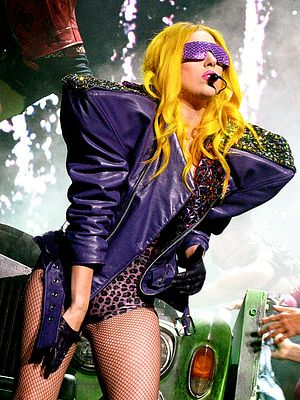Some Monday China links that don’t have to do with the new economic data:
The Hollywood Reporter reports that China has lifted a three year ban on Lady Gaga when it approved her new album, ARTPOP, for sale on the mainland. Upon receiving the news, the singer—whose music had been banned in China for vulgarity, tweeted: “The Chinese Government approved ARTPOP to be released in China with all 15 songs! Next I hope I can come to perform!” Despite allowing all the songs on the album to be released, the Chinese version of ARTPOP will feature a less risqué cover, similar to the one being used in Middle East markets.
On Monday China announced that President Xi Jinping will attend the opening ceremony of the 22nd Winter Olympic Games in Russia’s Sochi from Feb. 6 to 8 at the invitation of Russian President Vladimir Putin. Although many other world leaders have decided to forgo attending, the decision by Xi to attend is not very unexpected given his close relationship to Putin and China’s recent hosting of the 2008 summer Olympics in Beijing. A Chinese foreign ministry spokesperson did say that, “This will be the first time a Chinese President has attended such a major international sports event hosted in another country.”
The Washington Post has an in-depth profile of Garry Locke’s rather mundane tenure as U.S. ambassador to China. As previously reported, President Obama has nominated Senator Max Baucus to succeed Locke.
On Sunday, the Central Committee of the Communist Party of China and the State Council released their “No. 1 Policy Document” for 2014, which—in keeping with the tradition of the past dozen years or so—focused on rural and agricultural reforms. Based on media accounts of the new report, it doesn’t appear to differ much from the ones of years past.
South China Morning Post is out with a good analysis of how leading small groups have helped Chinese leaders dating back to Mao exert control over the unwieldy party and government apparatuses.
Ahead of the Geneva II UN conference on Syria, Beijing has put forth a five point proposal for solving the prolonged civil war in that country. However, hours after Foreign Minister Wang Yi unveiled the largely unimaginative proposal, Syria’s main opposition group announced it will not participate in the Geneva conference because of its opposition to UN Secretary General Ban’s decision to invite Iran. In other China-Middle East news, on Friday Beijing and the Gulf Cooperation Council vowed to speed up free trade talks.
Of course, the biggest story out of China today is the new economic data, which we covered here and will continue writing about in the coming days.

































